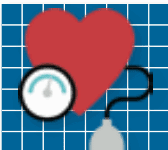Implantable cardioverter defibrillators (ICDs) can indeed save and extend lives, but they are not for everyone. There are two main groups of individuals who should have an ICD placed. The first are those with a history of heart attack, and a left ventricular ejection fraction of less than or equal to 35 percent. In this group, the risk of a dangerous cardiac arrhythmia such as ventricular tachycardia (VT) or ventricular fibrillation (VF) is high enough to warrant placement of such a device. Some studies have suggested that patients with a low ejection fraction, but without a history of heart attack, can also benefit from an ICD. The other group are people who have previously experienced VT or VF. Such individuals are much more likely to have another possibly lethal arrhythmia, and would qualify for an ICD. Some important reasons why a person who otherwise needed an ICD might not get one would be frequent bloodborne infections. ICDs can become infected, and their removal is an involved procedure, which is quite risky.
To continue reading this article or issue you must be a paid subscriber.
Sign in





